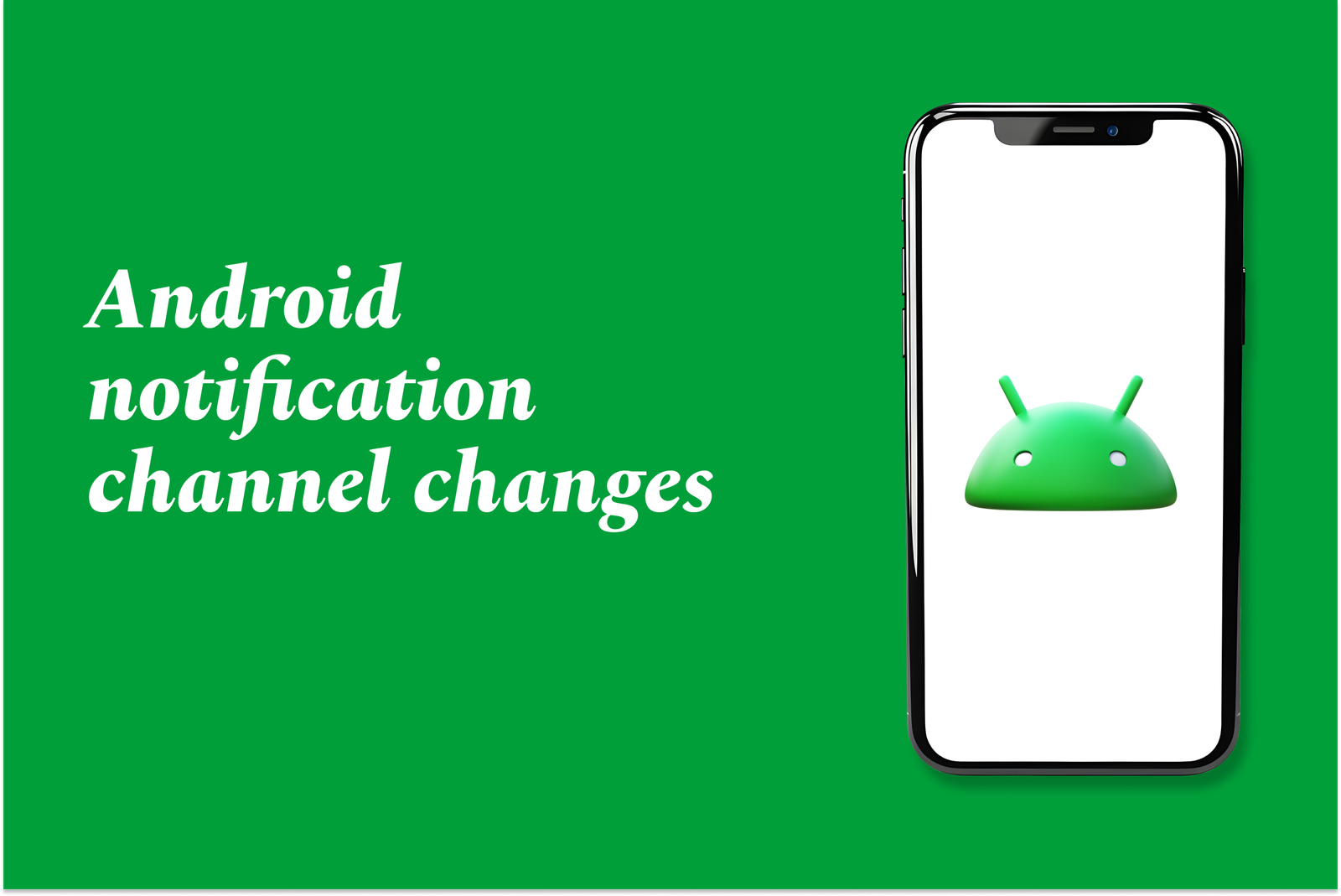Android Notification Channel Changes
Android notification channel changes require apps to categorize notifications into defined channels, giving users control over preferences like sound and vibration. These changes improve notification management and user experience by allowing granular customization per channel.
Android Notification Channel Changes
1 ) Overview of Changes
Adobe Campaign relies on Firebase Cloud Messaging (FCM) to send push notifications on Android devices.
In 2024, Google is discontinuing the legacy FCM HTTP API on June 20, requiring migration to the newer HTTP v1 API.
Adobe Campaign Standard added support for the HTTP v1 API starting with the 24.1 release.
Users must update their Adobe Campaign configurations and mobile apps to continue seamless push notification delivery.
2 ) Impact of Changes
Existing Adobe Campaign push notification implementations using legacy FCM APIs will be affected.
Failure to update will result in notification service disruption for Android users.
Adobe also recommends upgrading iOS notifications to use token based APNs connection for better security and scalability.
3 ) Prerequisites for Transition
Upgrade Adobe Campaign environment to at least version 24.1 to utilize HTTP v1 API support.
Obtain the Android Firebase Admin SDK service account JSON file required for new API authentication.
Migrate any legacy SDK implementations to Adobe Experience Platform SDK as part of modernization.
Ensure the user has appropriate Mobile App Configuration permissions in Adobe Experience Platform Data Collection.
4 ) Steps to Update Configuration
Navigate to Adobe Campaign’s Administration > Channels > Mobile app (AEP SDK).
Select the relevant mobile app and check the ‘Update app credentials’ option.
Enter the Android App ID (package name) matching the project’s build.gradle settings (distinct for production and staging).
Upload the Android private key JSON file from Firebase Admin SDK.
Save changes to finalize the update.
5 ) Additional Recommendations
For uninterrupted push notification service, all Android mobile applications integrated with Adobe Campaign must complete this migration.
Continual maintenance of push notification credentials and configuration is essential for security and functionality.
Adobe encourages the adoption of token based APNs for iOS push to enhance security beyond certificate based connections.
Summary:
Google’s 2024 update requires migration from legacy FCM APIs to the HTTP v1 API for Android push notifications. Adobe Campaign Standard supports this from release 24.1 and provides a detailed process to update credentials and configurations. Immediate action is necessary to avoid notification service interruptions and to adopt more secure and scalable notification delivery practices.
https://justacademy.in/news-detail/android-battery-health-monitoring-features
https://justacademy.in/news-detail/flutter-ai-packages-gaining-traction
https://justacademy.in/news-detail/building-3d-interfaces-in-flutter
https://justacademy.in/news-detail/new-android-widgets-trends
https://justacademy.in/news-detail/flutter-europe-2025-announcements
Related Posts
Java supports GDPR and data privacy by enabling secure data handling through encryption, controlled access, and precise data management. It allows developers to minimize PII exposure, ensure data confidentiality, and design workflows that comply with data protection regulations effectively.
Java code quality tools have evolved to include advanced static analysis, integrated security checks, and AI-powered code reviews. These updates help developers detect bugs, enforce coding standards, and enhance security, streamlining the development process and improving overall code reliability.
Java remains a cornerstone in big tech companies, evolving with modern features like records, pattern matching, and virtual threads. Its robust ecosystem, enhanced performance, and growing AI integrations keep it vital for both legacy systems and innovative new projects.
Java and CI/CD pipeline optimizations streamline Java application development by automating builds, tests, and deployments. They improve efficiency through parallelization, caching, and secure secrets management, enabling faster feedback loops and more reliable, scalable software delivery.
Java supports modern cryptography standards through its flexible Java Cryptography Architecture (JCA), enabling integration of advanced algorithms like AES, EdDSA, and post-quantum tools. Libraries like Bouncy Castle offer FIPS-certified, hardware-accelerated implementations for secure development.
Java 23 enhances record patterns by enabling concise, direct destructuring of record components within pattern matching, simplifying type checks and data extraction. This improvement boosts code readability and expressiveness by reducing boilerplate in handling immutable data classes.
Java remains a top choice for mobile app backends, powering scalable, secure, and high-performance server-side solutions. Latest trends include cloud-native microservices, reactive programming, and enhanced JVM optimizations, enabling efficient, flexible, and robust mobile backend development.
Java SE 24 and LTS Java SE 21 offer enhanced features and performance, while Apache Spark 4.0.0 introduces Scala 2.13 support and advanced ML and SQL capabilities. Together, they empower developers to build scalable, high-performance data applications with modern tools.
JUnit 5 modernizes Java testing with a modular architecture, improved assertions, and seamless Java 8+ support. Beyond JUnit, tools like Mockito and AssertJ enhance mocking and assertions, creating a powerful, flexible ecosystem for writing clean, efficient Java unit tests.
Java plays a pivotal role in cloud automation tools by providing a robust, platform-independent language used to build scalable automation frameworks like Jenkins and Selenium, enabling efficient CI/CD pipelines, testing, and orchestration across diverse cloud environments.










